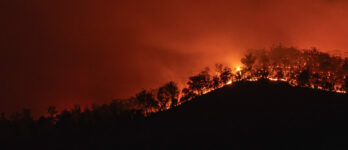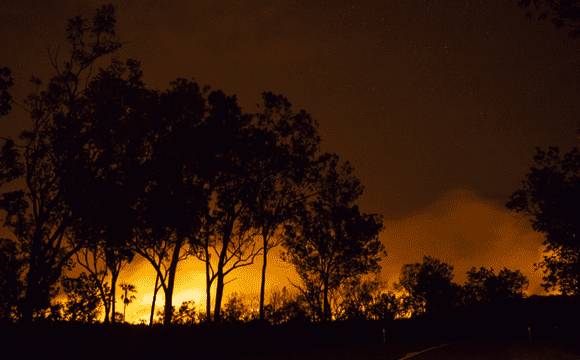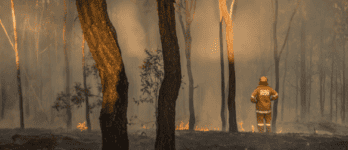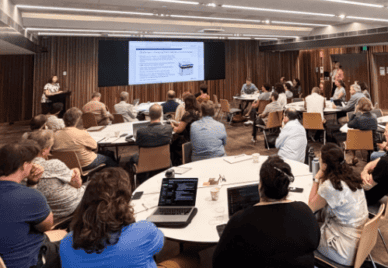
In partnership with the bushfire community, the Australian Research Data Commons (ARDC) is investing in developing innovative digital infrastructure solutions with the aim of improving Australia’s bushfire resilience, response and recovery.
Through the ARDC’s systematic consultation process, bushfire behaviour modelling and the relevant data was identified as a focus area of phase 1 of the Bushfire Data Challenges. The Bushfire Data Challenges program aims to build comprehensive national data assets in these areas and create a shared bushfire modelling environment to support research, development, planning and response.
The ARDC is pleased to announce the 5 projects that will create a Bushfire Data Commons as part of the Bushfire Data Challenges program. We are investing a total of $2.4 million in these projects, with $3.095 million in co-investments from partners.
Consultation and Collaboration — The Key to a National Approach
For the Bushfire Data Challenges program, the ARDC conducted 9 months of targeted consultations, including a series of facilitation meetings and participatory design workshops with 92 stakeholders. This process captured priority areas for national digital research infrastructure.
The ARDC has convened key national stakeholders from the research and public sectors to design a national data capability that spans research, development and operational planning, response and recovery.
The consultation process identified 2 key areas for national digital research infrastructure, which will occur in 2 phases:
- a Bushfire Data Commons for modelling bushfire behaviour: nationally aggregating data and models on bushfire history and fuel
- a Bushfire Data Commons for modelling bushfire impact: nationally aggregating data and models on the impact of bushfires on physical and mental health and that on the built and natural environment
Announcing the 5 Projects That Will Create a Translational Research Bushfire Data Commons
We are pleased to announce the projects and partners who will develop Phase 1: A Bushfire Data Commons for modelling bushfire behaviour and associated national data assets.
The Bushfire Data Commons will comprise the following 5 projects:
1. Aggregated and harmonised burnt extent bushfire history data on a national scale
Partners: GeoScience Australia, Emergency Management Spatial Information Network Australia (EMSINA)
This project will establish a nationally aggregated and harmonised data asset on past bushfires boundaries for Australia. This data asset will fill a long-standing gap and demand for national fire history datasets to support bushfire research as well as National Emergency Management, National Fire Danger Ratings System and associated risk management operations.
2. Aggregated and harmonised fuel data on a national scale
Partners: TERN, The Australian Government Department of Agriculture, Water and the Environment (DAWE)
The efficient national monitoring of fuel conditions is vital to understand bushfire behaviour and risk. This project will define implementation processes and systems for ongoing sharing of fuel data and related attributes to better enable Australia-wide bushfire preparedness and response. The project will create a curated and harmonised fuel data asset from TERN, DAWE, and states as an initial product for an ongoing capability.
3. Improving remote sensing fuel data on a national scale
Partner: The Australian National University (ANU)
This work will contribute towards compiling and sharing existing field and remote sensing observations for fuel loads, structure and moisture in a national database. This national database will be used to improve remote sensing products and will be publicly available to support other research programs.
4. A fire behaviour modelling platform
Partner: CSIRO
The bushfire behaviour modelling platform will be a bridge from data acquisition, processing and modelling to operation and assessing bushfire risk. The platform will be developed as a proving and testing ground for new data, models and analytics. It will be a collaborative, open environment for researchers, agencies and stakeholders, and it will be open for use in research as well as operational evaluation.
5. Framework for sharing bushfire data and tools between jurisdictional agencies
Partners: National Council for Fire & Emergency Services (AFAC)
This project will create a robust and enduring framework to facilitate the development of new understanding of bushfire behaviour through simple access to core data sets. It will consider data content standards, access and authorisation methods, licensing and privacy.
Next Steps
Consultations with a broad range of stakeholders regarding Phase 2 is underway.
Read more about the successful Bushfire Data Commons projects, and learn more about the project via the case study.






